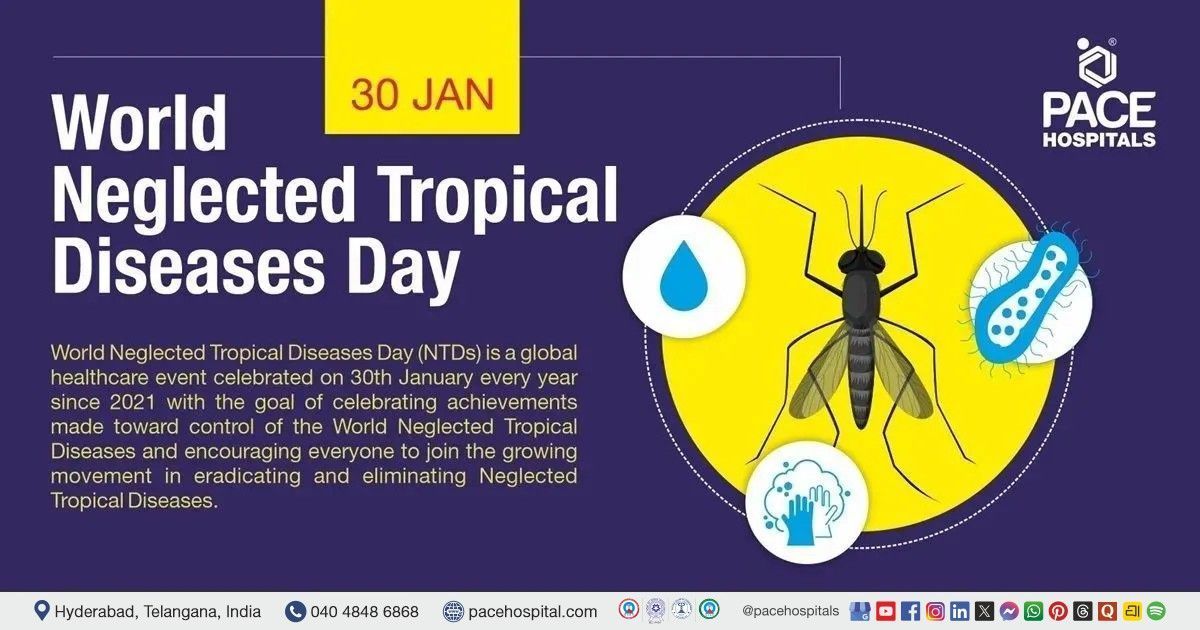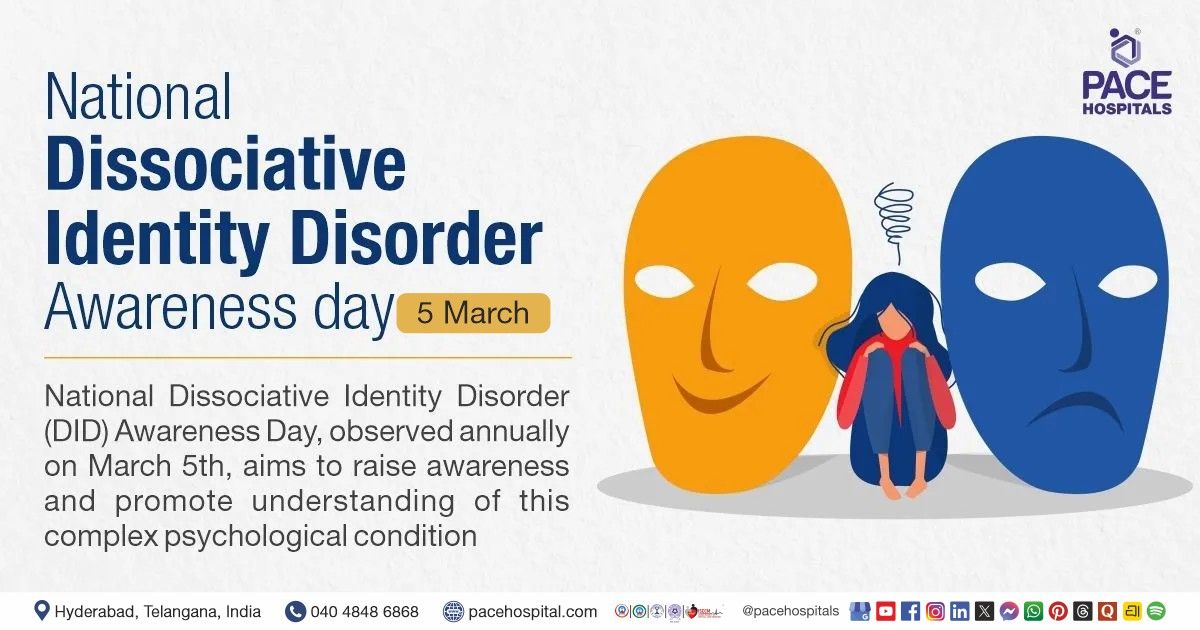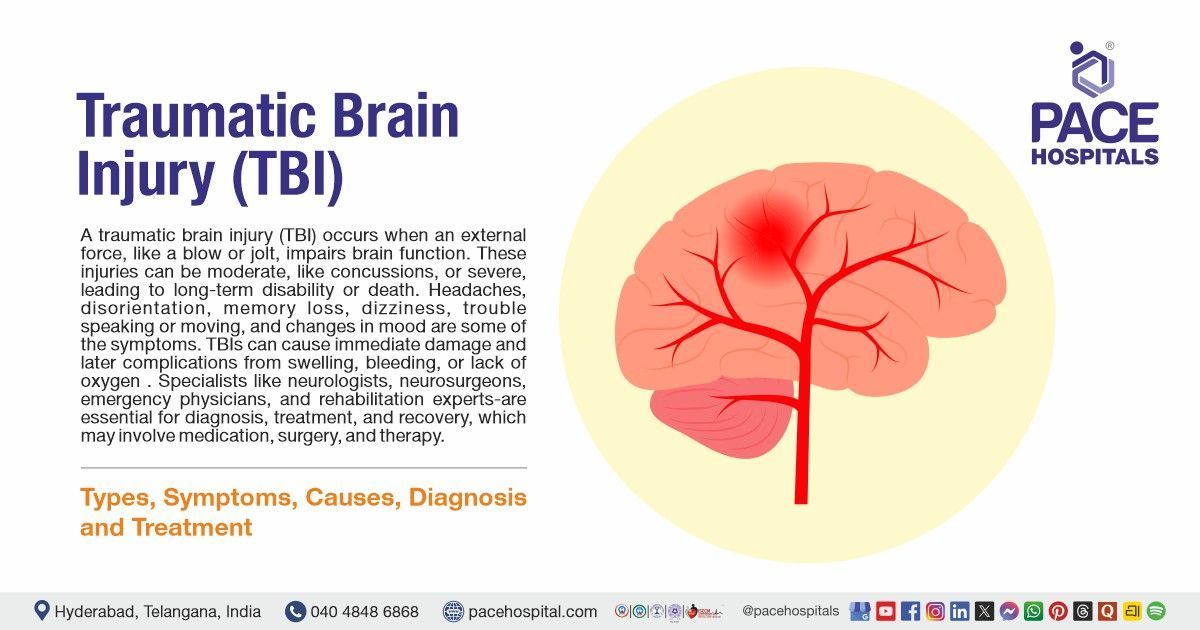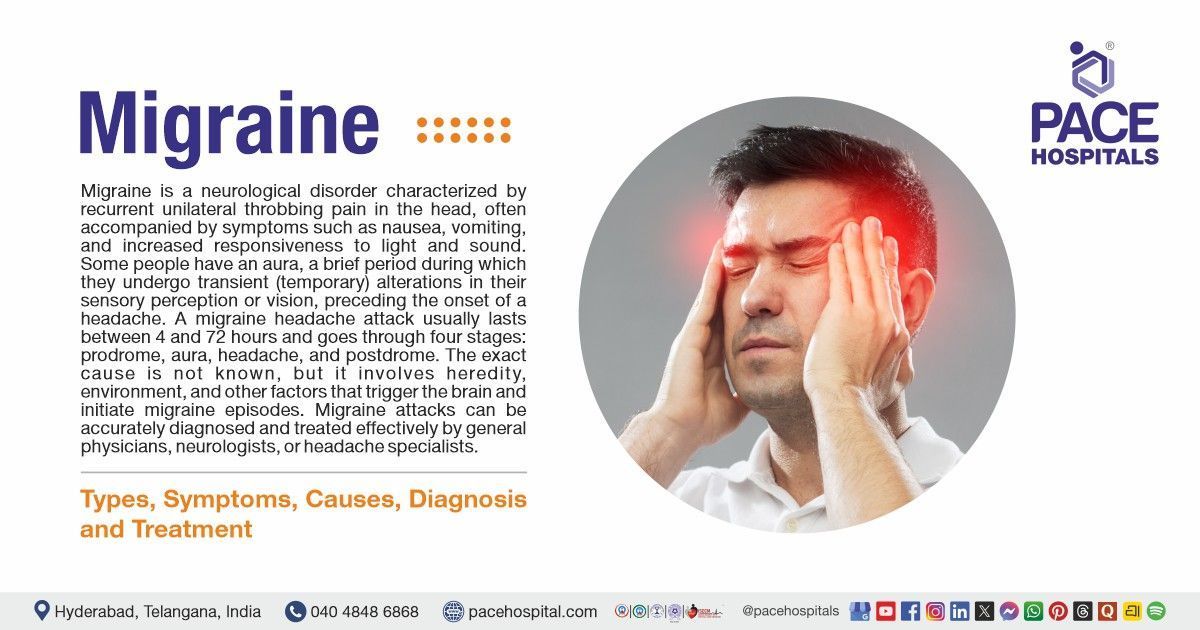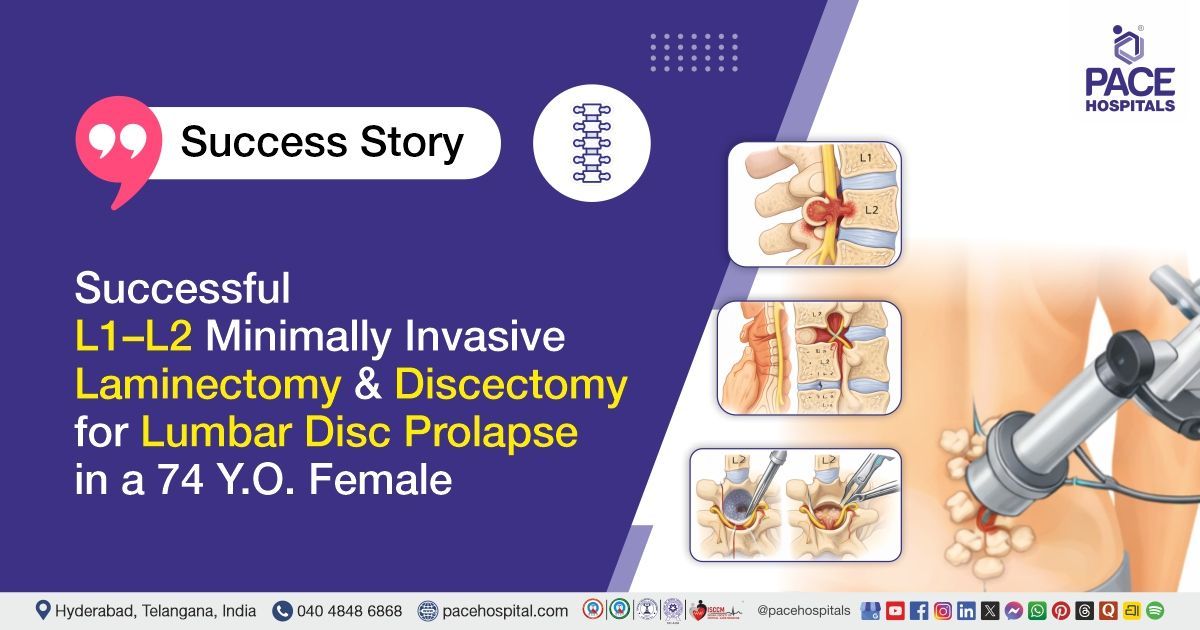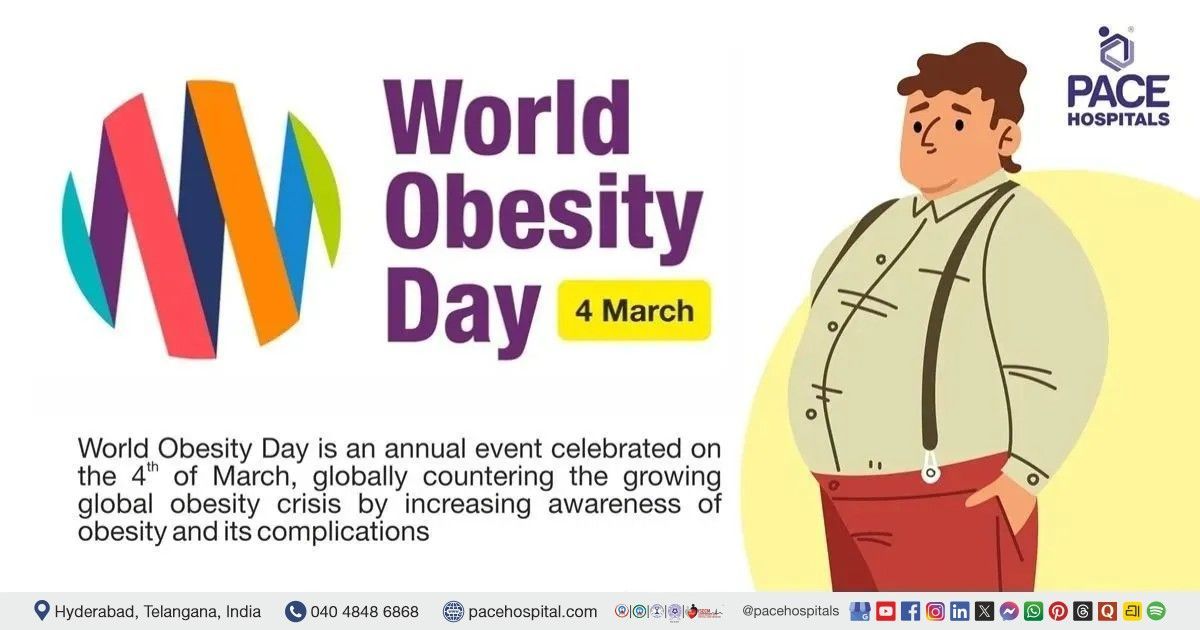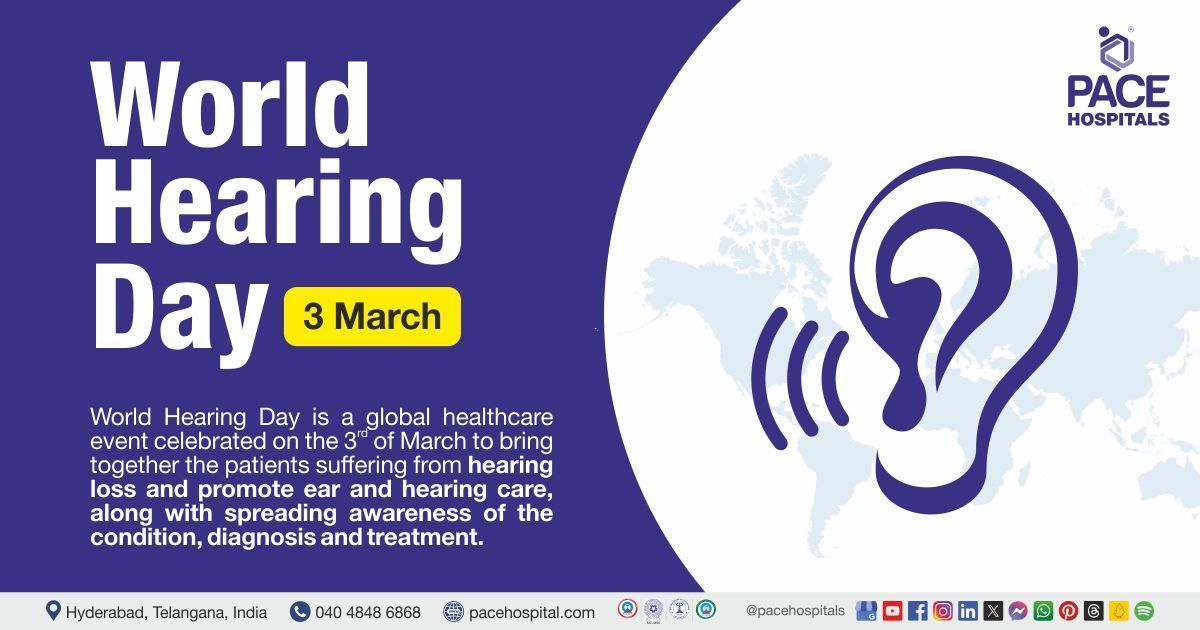World NTD Day, 30 January 2026 - Theme, Importance and History
PACE Hospitals
World Neglected Tropical Diseases Day (World NTD Day) is a global healthcare event celebrated on 30th January every year since 2021 with the goal of celebrating achievements made toward control of the World Neglected Tropical Diseases and encouraging everyone to join the growing movement in eradicating and eliminating Neglected Tropical Diseases.
Neglected tropical diseases (NTDs) are a set of 20 diseases that include parasites, protozoa, bacterial, and viral diseases that are primarily seen in tropical regions. They significantly impact underdeveloped societies (low-income areas) and disproportionately affect children and women. Access to quality water, health care facilities, and sanitation are less in these low-income regions. More than 100 crore people globally suffer from the terrible health, social, and economic effects of these neglected tropical diseases.
Importance of World NTD (Neglected Tropical Diseases) Day
Neglected tropical diseases cause financial hardship for patients and their families. In addition to this, it also has other negative outcomes, such as disability, discrimination, stigma, and social exclusion. Despite this, NTDs have traditionally been a low priority, almost non-existent on the global health policy agenda.
Tropical diseases are neglected because of the following:
- They don't exist much in the agenda of concern or in the list of high priority
- Receive very less funds from the local and central governments
- Associated with the social stigma
The spread of NTDs is complicated and often influenced by environmental factors. Public health remains difficult to manage as many of these NTDs have animal reservoirs and complex life cycles and are transmitted by vectors.
In 2020, the World Health Organization (WHO) estimated NTDs would account for nearly 190 lakhs Disability-Adjusted Life Years (DALY: one DALY is equivalent to the loss of one-year health) and more than 170 crores per year required treatment for at least one NTD. In 2019, over 100 crore people received treatment for at least five neglected tropical diseases.
The new neglected tropical diseases (NTD) road map for 2021-2030 shifts focus from vertical disease programmes to integrated cross-cutting approaches, guiding WHO's efforts to speed up the elimination, control, eradication, and prevention of NTDs. To achieve such goals, WHO has recommended five core strategies:
- New and improved approaches to disease control
- Providing chemoprophylaxis to all the people
- Control of vectors
- Promoting veterinary public health
- Supply of clean water, sanitary facilities, and hygiene environment
The worldwide aims for 2030 are to reduce the no. of people requiring treatment for NTDs by 90%, reduce Disability-Adjusted Life Years (DALYs) due to NTDs by 75%, have at least 100 nations eliminate at least one NTD, and eradicate dracunculiasis and yaws diseases.
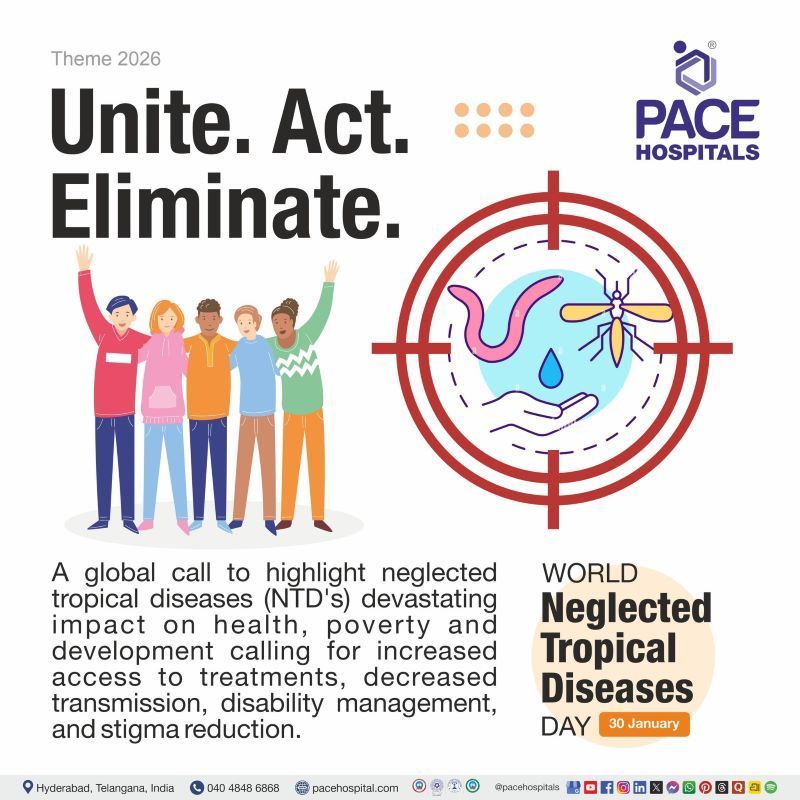
World NTD (Neglected Tropical Diseases) Day 2026 Theme
This year, 2026, the World Neglected Tropical Diseases Day Theme is "Unite. Act. Eliminate". This theme highlights neglected tropical diseases (NTD's) devastating impact on health, poverty and development calling for increased access to treatments, decreased transmission, disability management, and stigma reduction.
Year by year theme of World Neglected Tropical Diseases Day (World NTD)
- World Neglected Tropical Diseases Day Theme 2025: Unite. Act. Eliminate
- World Neglected Tropical Diseases Day Theme 2024: Unite. Act. Eliminate
- World Neglected Tropical Diseases Day Theme 2023: Act now, Act together, Invest in neglected tropical diseases
- World Neglected Tropical Diseases Day Theme 2022: Achieving health equity to end the neglect of poverty-related diseases
History of World NTD (Neglected Tropical Diseases) Day
On 30th January 2012, World NTD Day marks the simultaneous release of the first NTD road plan (2012-2020) and the London Declaration on NTDs.
The London Declaration on NTDs was adopted on 30th January 2012 to acknowledge the global burden of NTDs. Officials from the World Bank, the Bill & Melinda Gates Foundation, the World Health Organization (WHO), representatives from top global pharmaceutical companies, and representatives from several national governments gathered at London's Royal College of Physicians to pledge their commitment to putting an end to the diseases.
The neglected tropical disease was first proposed officially by UAE, recognizing the day after all delegates agreed to and passed this proposal. WHO further approved this at the 74th World Health Assembly (2021).
Prevention of Neglected Tropical Diseases (NTD)
The following can prevent neglected tropical diseases (NTDs)
- Intake of timely vaccines
- Good hygiene practice
- Drinking clean water
- Maintenance of sanitary food handling
- Control of vectors growth (agents that spread diseases), such as flies, and mosquitoes
Share on
Request an appointment
Fill in the appointment form or call us instantly to book a confirmed appointment with our super specialist at 04048486868

